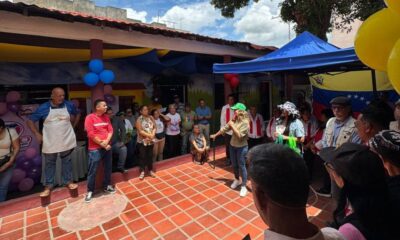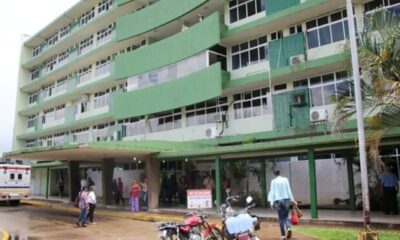Hombre & Mujer
AOD-9604 Peptide: Potential Implications in Regenerative and Metabolic Research

AOD-9604, a synthetic peptide fragment derived from the C-terminal region of growth hormone (hGH), has garnered interest in scientific research for its potential utility in metabolic and regenerative implications. Its unique structure, consisting of amino acids 177–191 of hGH, is believed to allow it to retain certain functional properties of the hormone without activating hGH receptors, thus distinguishing it from full-length growth hormone. This property suggests that AOD-9604 may hold promise in a range of scientific domains, from exploring metabolic regulation to investigating tissue repair mechanisms.
Structural Characteristics and Mechanisms
AOD-9604 is a short peptide believed to replicate a specific sequence of hGH, theorized to play a role in lipid metabolism. Research indicates that by selectively binding to receptors or cellular pathways associated with fat metabolism, the peptide might influence the breakdown of lipids without engaging in growth-related processes typically associated with hGH. This selective mechanism makes AOD-9604 a promising molecule for studying metabolic functions.
It has been hypothesized that the peptide may exert its impacts by stimulating pathways linked to lipolysis while potentially inhibiting lipogenesis. These mechanisms are of particular interest for research on metabolic syndromes, where imbalances in lipid storage and utilization are a central concern. Furthermore, its structural stability and specificity suggest it might serve as a tool for mapping the intricate networks of metabolic regulation, offering insight into how cells balance energy storage and expenditure.
Metabolic Research Implications
AOD-9604 has been explored for its potential to advance the understanding of lipid metabolism. Lipid dysregulation is a hallmark of many chronic conditions, such as obesity and metabolic syndrome, which present significant challenges. Investigations purport that the peptide may serve as a model compound for investigating the biochemical pathways involved in adipose tissue dynamics.
In in vitro systems, AOD-9604 has suggested the potential to support the breakdown of triglycerides in adipocytes. This suggests that it might help elucidate the molecular triggers of lipolysis. Researchers theorize that by modulating lipolytic activity, AOD-9604 may help identify novel molecular targets for addressing metabolic imbalances. Such investigations might provide valuable insights into how lipid metabolism may be influenced in non-growth-related pathways, offering a more targeted approach to studying energy homeostasis.
Additionally, findings imply that the peptide might help explore the interplay between metabolism and cellular energy production. By investigating its impact on lipid utilization, researchers might gain a clearer picture of how adipocytes contribute to overall energy balance. This data may extend to studies of conditions where energy dysregulation is a core feature, such as type 2 diabetes and metabolic inflammation.
Possible Role in Regenerative Research
Beyond its metabolic implications, AOD-9604 is being considered for its potential impacts on tissue repair and regeneration. The peptide’s possible role in cellular signaling pathways, particularly those involving tissue remodeling, may make it a valuable candidate for investigating regenerative processes. While its precise mechanisms remain under investigation, it has been hypothesized that AOD-9604 might stimulate specific cascades that promote cellular turnover or repair damaged tissues.
In models of tissue injury, the peptide has been hypothesized to serve as a focal point for studying how peptide-based interventions may influence healing processes. For example, its possible role in modulating collagen synthesis might provide insights into strategies for supporting epidermal layer integrity and wound healing. Additionally, findings imply that AOD-9604 might aid in exploring how metabolic factors impact tissue repair, as metabolic and regenerative pathways are often interconnected.
Another area of interest is the peptide’s potential in musculoskeletal research. Tissue degradation, whether due to cellular aging, overuse, or trauma, represents a significant area of scientific inquiry. By studying AOD-9604, researchers might gain a deeper understanding of how peptides influence cartilage and muscle cell regeneration. Such insights may contribute to the development of novel approaches for addressing degenerative conditions in these tissues.
Exploring Intersectional Implications
The dual focus of AOD-9604 on metabolic and regenerative processes suggests that it may play a role in bridging these domains. For instance, metabolic integrity is intrinsically linked to the capacity to repair and regenerate tissues. Researchers hypothesize that compounds like AOD-9604 might help clarify how these processes interact. Such investigations might provide a holistic understanding of how energy balance and tissue integrity are maintained in complex biological systems.
Scientists speculate that the peptide may also be a helpful tool in studying cellular aging, a process where metabolic slowdown and diminished regenerative potential are closely intertwined. By examining AOD-9604’s impacts on these pathways, scientists may uncover molecular patterns associated with the cellular aging process, potentially identifying targets to mitigate cellular age-related declines in metabolic and regenerative functions.
Future Directions and Experimental Opportunities
The potential implications of AOD-9604 in scientific research are vast, spanning metabolic, regenerative, and intersectional fields. Moving forward, experimental studies might aim to:
- Elucidate Lipid-Specific Pathways: Detailed research on how AOD-9604 may influence specific lipid metabolism pathways might identify unique molecular interactions, offering new angles for addressing metabolic disorders.
- Tissue-Specific Impacts: Investigating how the peptide operates in various tissue types may suggest its role in promoting repair and maintaining cellular homeostasis.
- Interplay with Other Molecules: Exploring synergistic impacts between AOD-9604 and other signaling molecules may help decode complex biological networks, offering insights into comprehensive metabolic and regenerative strategies.
- Impact of Structural Modifications: Investigations into how alterations in AOD-9604’s structure affect its bioactivity might help refine its implications, tailoring its properties for specific research purposes.
Conclusion
AOD-9604 is a versatile peptide with potential implications in metabolic and regenerative research. By modulating lipid metabolism and possibly influencing tissue repair pathways, the peptide offers unique opportunities to explore fundamental biological processes. Future investigations may uncover new dimensions of its impacts, broadening the horizons of peptide-based research and advancing our understanding of the complex mechanisms underlying metabolic and regenerative science. Through rigorous scientific inquiry, AOD-9604 may serve as a stepping stone to novel insights in these domains. AOD 9604 peptide is available at Biotech Peptides. None of the compounds mentioned in this paper have been approved for consumption. They should not be acquired or utilized by unlicensed individuals outside of controlled research environments such as labs.
References
[i] Kharitonov, V. M., & Kozlov, A. P. (2020). Role of peptides in the regulation of lipid metabolism. Peptides, 132, 170367. https://doi.org/10.1016/j.peptides.2020.170367
[ii] Zinn, A., & Silverman, J. S. (2018). Peptide-based therapeutics in metabolic diseases: An overview. Trends in Endocrinology & Metabolism, 29(8), 552-562. https://doi.org/10.1016/j.tem.2018.04.004
[iii] Lee, S., & Alhaddad, A. (2019). Growth hormone derivatives: Potential roles in tissue repair and regenerative medicine. Endocrinology and Metabolism Clinics of North America, 48(2), 247-261. https://doi.org/10.1016/j.ecl.2019.02.004
[iv] Fernández, L. A., & Macias, J. M. (2021). The intersection of metabolism and regeneration: Insights from peptide-based therapies. Regenerative Medicine, 16(3), 239-250. https://doi.org/10.2217/rme-2020-0127
[v] Hu, B., & Jiang, M. (2017). Metabolic effects of synthetic peptides and their applications in obesity and diabetes management. Journal of Diabetes Research, 2017, 8416143. https://doi.org/10.1155/2017/8416143
Hombre & Mujer
Tras aranceles de Trump, China registra cantidad récord de importación de crudo canadiense

China estaría registrando cantidades récords de importación de crudo canadiense, tras reducir drásticamente las compras de petróleo estadounidense, en medio de la ‘guerra’ arancelaria con Donald Trump.
La ampliación de un oleoducto en el oeste de Canadá, inaugurado hace menos de un año, ha brindado a China y a otros importadores de petróleo del este de Asia un mayor acceso a las vastas reservas de crudo de la región de arenas petrolíferas de Alberta.
Las importaciones chinas de crudo desde el puerto en la terminal del oleoducto cerca de Vancouver se dispararon a la cifra sin precedentes de 7.3 millones de barriles en marzo y van camino de superar esa cifra este mes, según datos de Vortexa, que rastrea los envíos de petróleo y gas natural por vía marítima.
Mientras tanto, las importaciones chinas de petróleo estadounidense se han desplomado a 3 millones de barriles mensuales desde un máximo de 29 millones en junio.
China importa más petróleo de Canadá
El cambio en los flujos de crudo norteamericano hacia China, el mayor importador de crudo del mundo, es otro ejemplo de las disrupciones económicas y estratégicas generadas por las medidas del presidente estadounidense Donald Trump para reestructurar las relaciones comerciales globales.
Para ser claros, el ‘apetito’ de China por el crudo canadiense comenzó a crecer cuando la expansión del oleoducto Trans Mountain, conocido como TMX, comenzó a transportar petróleo de Alberta a la costa del Pacífico de Columbia Británica en mayo.
La tendencia solo se aceleró después de que Trump asumiera el cargo con la intención declarada de imponer aranceles a China y otros países.
“Dada la ‘guerra’ comercial, es improbable que China importe más petróleo estadounidense”, declaró Wenran Jiang, presidente del Foro Canadá-China de Energía y Medio Ambiente, en una entrevista telefónica.
“No van a depender solo del petróleo ruso ni del de Oriente Medio. Cualquier producto canadiense será una buena noticia”, apuntó.
Aunque las importaciones chinas de petróleo de Norteamérica son insignificantes en comparación con las de Oriente Medio y Rusia, las arenas bituminosas canadienses constituyen una de las pocas fuentes de crudo relativamente barato, denso y con alto contenido de azufre, que muchas de las refinerías más avanzadas de China están equipadas para procesar
Para las refinerías asiáticas, el crudo de Oriente Medio con características similares, como el crudo pesado de Basrah de Irak, es caro en comparación con el petróleo de Alberta, dada la fortaleza del crudo de referencia de Dubái en la región.
Con información de: El Financiero
No dejes de leer: Así define el sexo biológico Supremo británico
Infórmate al instante únete a nuestros canales
WhatsApp ACN – Telegram NoticiasACN – Instagram acn.web – TikTok _agenciacn – X agenciacn
-

 Deportes23 horas ago
Deportes23 horas agoFluminense en semifinales del Mundial de Clubes 2025 (+ video)
-

 Deportes8 horas ago
Deportes8 horas agoMás de 100 atletas participan en II Torneo Nacional “Batalla de Carabobo” de Tiro con Arco
-

 Carabobo23 horas ago
Carabobo23 horas agoGran afluencia de visitantes en Museo de la Cultura durante segunda semana del «1er Salón de la Ilustración»
-

 Carabobo24 horas ago
Carabobo24 horas agoEstudiantes de IDEA participaron en creativa jornada acompañados por la Dirección Central de Cultura UC



















